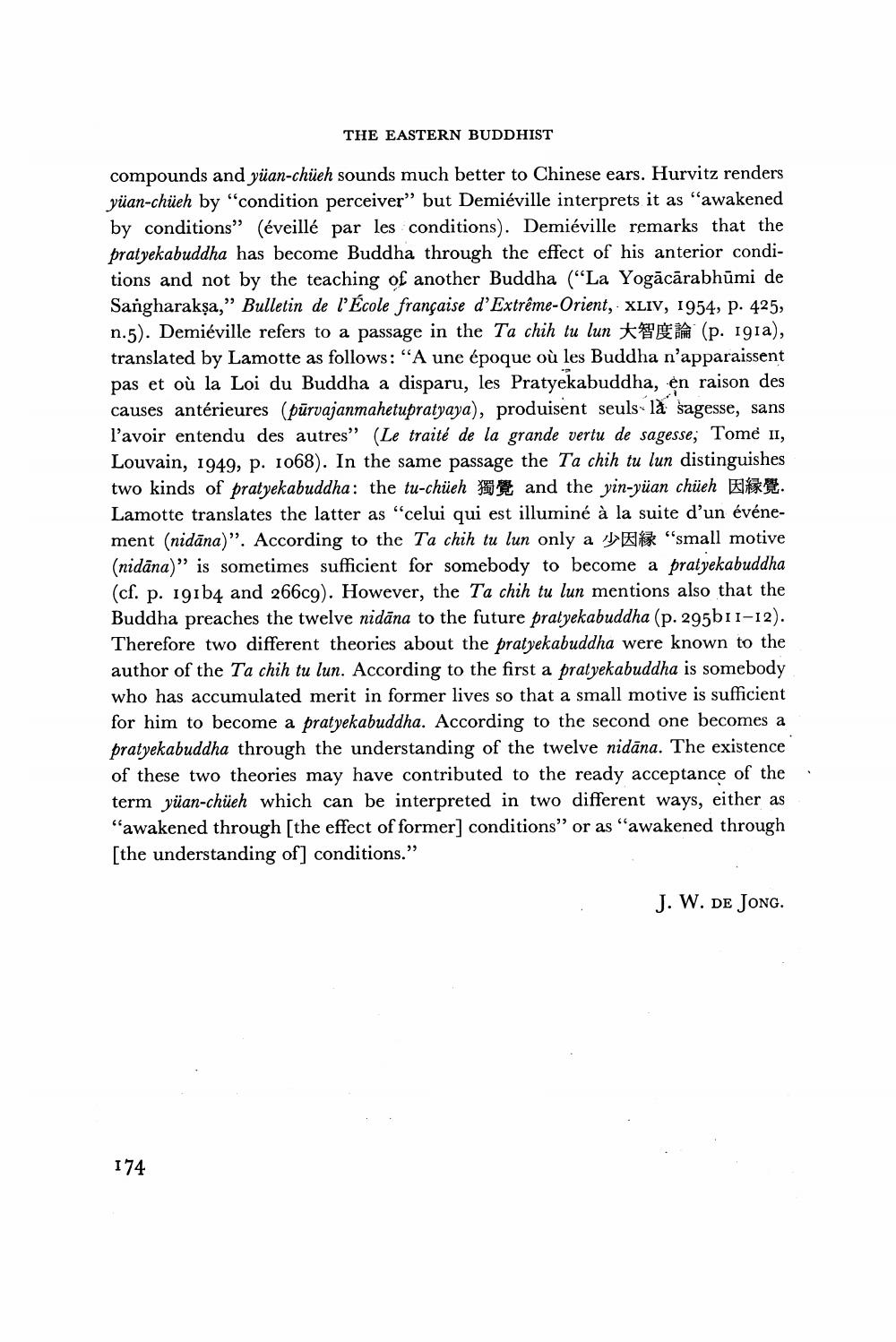Book Title: Book Reviews Of Scripture Of Lotus Blossom Of Fine Dharma Author(s): J W De Jong Publisher: J W De Jong View full book textPage 6
________________ THE EASTERN BUDDHIST compounds and yuan-chueh sounds much better to Chinese ears. Hurvitz renders yuan-chueh by "condition perceiver" but Demieville interprets it as "awakened by conditions" (eveille par les conditions). Demieville remarks that the pratyekabuddha has become Buddha through the effect of his anterior conditions and not by the teaching of another Buddha ("La Yogacarabhumi de Sangharaksa," Bulletin de l'Ecole francaise d'Extreme-Orient, XLIV, 1954, p. 425, n.5). Demieville refers to a passage in the Ta chih tu lun E (p. 191a), translated by Lamotte as follows: "A une epoque ou les Buddha n'apparaissent pas et ou la Loi du Buddha a disparu, les Pratyekabuddha, en raison des causes anterieures (purvajanmahetupratyaya), produisent seuls- la sagesse, sans l'avoir entendu des autres" (Le traite de la grande vertu de sagesse; Tome II, Louvain, 1949, p. 1068). In the same passage the Ta chih tu lun distinguishes two kinds of pratyekabuddha: the tu-chueh 9 and the yin-yuan chueh *TE. Lamotte translates the latter as "celui qui est illumine a la suite d'un evenement (nidana)". According to the Ta chih tu lun only a t "small motive (nidana)" is sometimes sufficient for somebody to become a pratyekabuddha (cf. p. 191b4 and 266c9). However, the Ta chih tu lun mentions also that the Buddha preaches the twelve nidana to the future pratyekabuddha (p. 295b11-12). Therefore two different theories about the pratyekabuddha were known to the author of the Ta chih tu lun. According to the first a pratyekabuddha is somebody who has accumulated merit in former lives so that a small motive is sufficient for him to become a pratyekabuddha. According to the second one becomes a pratyekabuddha through the understanding of the twelve nidana. The existence of these two theories may have contributed to the ready acceptance of the term yuan-chueh which can be interpreted in two different ways, either as "awakened through (the effect of former] conditions" or as "awakened through [the understanding of] conditions." J. W. DE JONG. 174Page Navigation
1 ... 4 5 6
